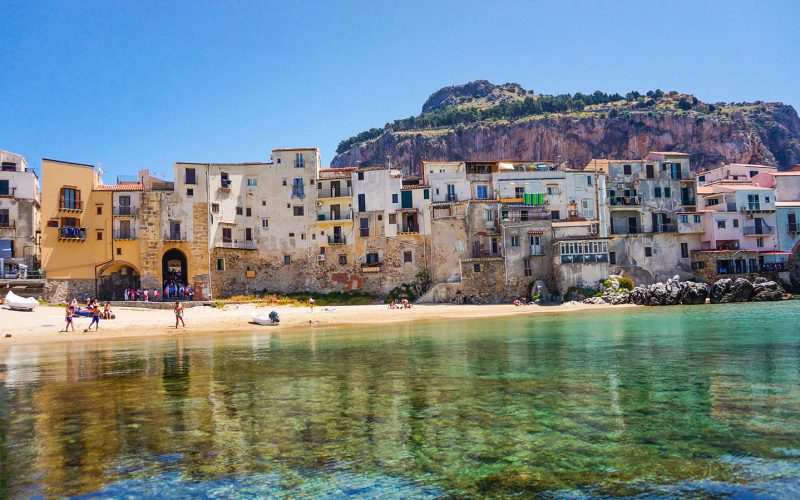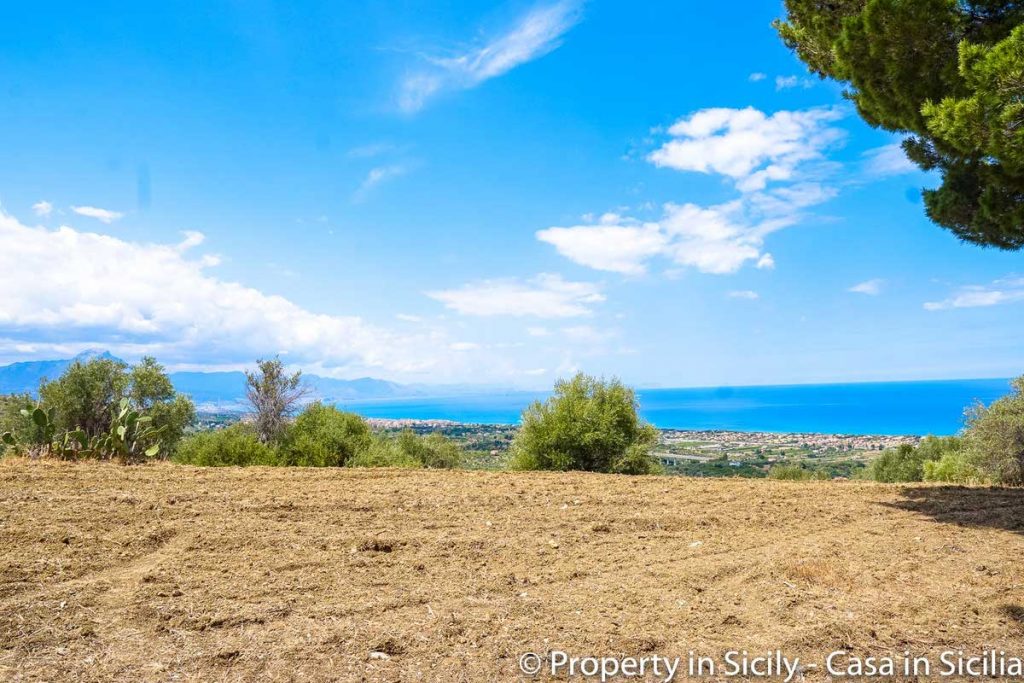ARTICLE UPDATE: 14 November 2024
In discussions with our clients, past and current, about what moved them to choose Sicily, a few themes recur time and time again. Of course, the island’s beautiful weather, incredible food and rich culture are powerful draws. But the tax benefits of relocation to Sicily have become a increasingly regular theme in these conversations.
At Property in Sicily we have recently seen an influx of clients from Malta and the UK, drawn primarily to buy real estate on the island by the impatriate tax regime.
In simple terms, from a taxation point of view Sicily is every bit as welcoming a proposition as Portugal and Spain right now. And in contrast to the southern coasts of those two countries, the beauty of our region is that it offers a Mediterranean climate with an intact culture. The vast waves of north European migration which have taken over much of the Costa del Sol and Algarve have never really arrived in Sicily. That, we think, is part of what makes it such a beautiful destination.
Of course, your decision to invest in Sicilian real estate may be above all else driven by the island’s unique charms – but that doesn’t mean you should miss out on the possible financial rewards of relocating.

If you already know which type of tax incentive you are interested in, you can jump straight to the relevant section. Otherwise, keep reading to discover what exactly we mean by ‘relocating’ to Sicily.
Looking for information on a specific scheme?
— Retiring to Sicily with the 7% tax Rate —
Relocation to Sicily and Residency
When we use the term ‘relocation’ to Sicily as opposed to simply buying property on the island or the act of ‘moving’ here, we’re talking about the transfer of tax residency to the island. This is an agreement to pay tax on your worldwide income to the Italian government, although reciprocal taxation agreements.
So if you own or are thinking seriously about buying a property in Sicily, you’ll need to establish whether you want to relocate and make it your permanent residence, or keep it as a second home? Many prospective buyers put this decision off, but in reality it’s one of the biggest questions you will need to consider.
Say you plan to spend more than 183 days per year in Italy (and who wouldn’t want to do that!?) – you’ll have no choice but to become a tax resident here. The same is true if you have the focus of your business, or family life here.
The biggest impact of the choice is on your tax situation. Non-residents are only liable for Italian tax on income earned on these shores, residents must pay tax on their entire worldwide income to the Italian government. Fortunately, many countries have what are known as Double Tax Treaties (DTTs), protecting you from the possibility of having to pay tax twice on the same income. For full details, take a look at this page on the website of the Agenzia dell’Entrate (the Italian IRS).
The prospect of entering into the country’s sometimes draconian tax regime can be off-putting for interested buyers, but don’t despair! Our current government is working hard to attract individuals willing to establish residency, and Italian tax rates are very favourable for new arrivals.
On this page we’re going to explain some ways to reduce your tax liability dramatically – you could easily save tens of thousands of Euros a year throughout your first decade of residency. Keep reading to find out more about the tax benefits of relocation to Sicily and if you need specific assistance on this topic maybe it’s a good idea to hire an solicitor or an accountant…

Tax relief is one popular reason for relocating to Sicily, but other motivating forces do exist!
Three Ways to Save, #1 – Retiring to the Sun
RETIRING TO THE SUN
Pension income is taxable in Italy, but since 2019 the law has included a loophole for new arrivals, and it particularly applies to Sicily. Our region is one of just eight (along with Abruzzo, Molise, Puglia, Campania, Basilicata, Calabria and Sardinia, if you’re wondering) where international arrivals with a private or public pension, moving their residence to a municipality with fewer than 20,000 residents, qualify for a full decade of tax relief.
The provision allows these new expats to pay a rate of just 7% on all international income. That means your pension, any property income, capital gains, even dividend payments. You do need to have been living outside Italy for the previous five years, and demonstrate that your pension and other income provides more than a baseline income, but the incredible news is that there is no upper cap on income taxed at this rate. That’s right – you can enjoy a completely flat tax rate on all income brought into the country! You don’t need to be an accountant to work out the savings.
The 7% rate lasts for a fixed period of 10 years.

Relocate to Sicily for tax benefits. Stay for the views.
Three Ways to Save, #2
THE INPATRIATE TAX REGIME
The tax benefits of relocation to Sicily aren’t only for the over 65s. If you haven’t reached the magic point of retirement just yet but have a Master’s degree or work in a particularly specialised field, you can still benefit greatly from the country’s desire to attract a cosmopolitan array of arrivals.
If you qualify for the scheme, transferring your residency and tax base to Sicily will give you a five year period in which your personal tax-free allowance will be an incredible 50%.
To be clear, this doesn’t means that you pay 50% tax – it means that only 50% of your income is subject to tax. With the first €15,000 earned only being taxed at a 23% rate, that could mean your total tax bill is an attractively low 13.5% of your income. No wonder people say that Italy is ready for a smart-working boom!
Talk to us today if you would like to know more about this option, and if we’re not able to give you a definite answer (the legislation is relatively new and the comparisons between Italian and overseas qualifications can be a bit subjective) we will be very happy to introduce you to a specialist who can.
Case Study #1 – The Smart Worker
Since the Covid-19 pandemic, smart working and so-called ‘digital nomad’ lifestyle have become ever more popular. Here is an example of how choosing to do this from Sicily can lead to big tax savings:
Ricky is an American digital consultant who likes to take breaks from work and recharge his batteries by taking walks in nature. At the end of 2022 he transferred his residence to a beautiful village in the Nebrodi Park, from where he runs his business online. The Italian connections he has made have allowed him to find new clients here.
Ricky’s taxable income in 2022 was around €110,000. By using the inpatriate regime (which was actually even higher before 2024), he has able to reduce his tax bill massively.
With the money saved, Ricky has begun renovating his new Sicilian property, and he tells us that he wouldn’t change a thing about his new lifestyle on the island.
How to Qualify
The temporary preferential tax regime can be applied to income earned both from employment and self-employment. In order to qualify you must be new to Italy, not having been resident here in the previous three years – and you must also agree to stay for at least four tax years. As a final condition, the work you do should at least predominantly be carried out in Italy.
Four Extra Years at the Reduced Rate
If you have a child under the age of 18, or who is financially dependent on you, and they come to Italy with you, the preferential tax rates for relocating to Italy last for an extra four years. In this period you can discount 40% of your total earnings.
Excitingly for our clients, the same five year extension is available to residents who become owners of at least one residential property in Italy, either after they relocate or in the 12 months beforehand.
This arrangement is open to EU citizens, and citizens of countries who have a double tax agreement in place with Italy. This includes both the UK and USA.

Clients who relocate to Sicily can enjoy incredible tax benefits
Digital Nomad Visas under the Inpatriate Tax Regime
With more and more people choosing the adventure and romance of a life bringing their remote work around the world with them, the Italian government has made provision for a smart worker visa. This will be of enormous benefit to non-EU citizens (such as Brits and Americans) who would otherwise have been restricted to entrance on a short-term tourist entry.
Open to both the self-employed and workers with an existing contract which allows them to work remotely, these visas last for a year, and can be renewed indefinitely, as long as the preconditions for application are met. These are:
✔️ You can either be self-employed or working for or in collaboration with a company, but the work must be carried out using digital tools;
✔️ You need to be able to prove an annual income of at least €25,500 (a sum equal to three times the threshold for public healthcare contributions, which could therefore rise with this limit in the future);
✔️ You must have at least six months’ previous experience as a remote worker;
✔️ You should be able to provide information about your accommodation for the duration of your stay in Italy;
✔️ You will need health insurance;
✔️ You may need to obtain an entry visa for Italy, if required for arrivals from your home country
If you are able to meet these requirements, you will be able to claim your digital nomad visa from the police headquarters in your new home town. If you have dependent family members who would like to join you, it will also be possible to apply for a residence permit on their behalf.
Three Ways to Save, #3
FLAT TAX FOR ENTREPRENEURS
The option to pay a flat tax makes Italy an increasingly popular destination for top bracket earners. Foreign entrepreneurs who move to Italy have the option to pay a flat tax of €200,000 euro on their total income.
While the scheme, introduced by the government of Matteo Renzi in 2017, was not met with universal popularity at the time of its arrival, it has survived into its fourth government – no small feat in the famously turbulent political climate of Italy. At the same time, it is hard to predict where policy will move in the future, so if you are considering a relocation to Sicily to take advantage of the flat tax, this could be the time to move.
Unrelated to the proposals of the Lega party, to introduce a completely flat tax rate across all of Italy, this is a policy specifically designed to attract high net worth individuals to Italy, offering them the choice of paying that flat hundred thousand euro per year – plus a supplement of €25,000 for each accompanying family member.
Case Study #2 – the German Company
This interesting case study, brought to us by an accountant colleague whom we have recommended to several of our clients, shows how the chain of savings can spread far beyond the individual worker.
Jens (not his real name) is a German entrepreneur working in financial services. His company opened a branch in Palermo and many of the workers were delighted to migrate south to the sun. Using the tax incentives available to businesses, they get to keep almost their whole entire gross wage.
Jens himself benefits from the inpatriate tax regime, but the bigger benefits to his company come from employing staff who earn around 30% more than they would working for a local competitor. This incredible rate will last for an entire decade.
An member of Jens’ team, after relocation to Sicily, earns a gross income of € 55,159 and pays no income taxes except social security contributions, saving them a huge € 17,737 per year. With the lower cost of living in the south and no problems convincing workers to come and enjoy the dolce vita lifestyle, it’s an incredibly enticing option for business owners in the north of Europe.
Stamp Duty Reductions for Residents
Property sales in Italy are, naturally, subject to purchase taxes (often known as ‘Stamp Duty’). If you buy property in Sicily as a second home then this will be equivalent to 9% of the cadastral value – which can be a hefty bill, especially for some of the more luxurious properties in our carefully selected portfolio.
The cadastral value is established in the local Land Registry, and is not the same as the purchase price. While we love to help our clients negotiate the best possible deal for their new home, we can’t do anything about the taxable value for these purposes.
However, if you elect to make your new investment a permanent residence, this drops down to an much more user-friendly 2%. On a property valued at €200,000, that’s a saving of €14,000 right off the bat.
Remember that if you are tax resident in Italy, you can still claim huge tax breaks after investing in renovation work on your property here, especially if that work makes it more environmentally friendly, accessible or earthquake resilient.
Conclusions: Relocate to Sicily and Save Big on Tax Bills
As you can see, the financial advantages of relocating on a full-time basis to our sunny island are nearly as dramatic as the geographic and lifestyle benefits Sicily has to offer. We would definitely urge anyone looking at buying property with us to consider doing so as a resident.
Not sure whether you qualify to move to Italy? Our comprehensive guide will take you through the main criteria and give far more information about the process, or speak to one of our friendly, multilingual team today.
Expert Advice at your Fingertips
We always suggest that our clients seek independent advice from a tax professional, and would be more than happy to put you in touch with one who speaks your language. If you’re reading this page in English, our first recommendation would always be the excellent Roberto Mineo.
Born in Pennsylvania (US) to an Italian family but practising as a financial advisor in Sicily since 2006, Roberto is perfectly positioned both to understand the nuances of the Italian tax system and to explain them to you, at whatever level of complexity you need.
His practice in Bagheria (PA) has been a key collaborator with Property in Sicily and of many of our clients since the very beginning of our story.




